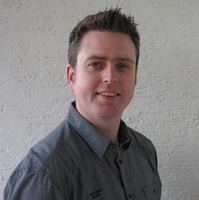Learn about purchasing for teams
Professionalizing Agile Coaching and the Agile Coaching Retreats

In 2011 Michael Spayd and Lyssa Adkins wrote that Agile Coaching was an emerging profession that, “...is conducted in an ad hoc, even erratic manner”[1]. This means pretty much anybody has been able to call themselves an Agile Coach, and anyone with little experience and lower competence may end up as an Agile Coach. This is not a good situation for anyone, not the client, not the coach. It degrades and damages the notion of an Agile Coach as a professional.
In a paper entitled, “Developing Great Agile Coaches - Towards a Framework of Agile Coaching Competency – Part I”, Michael and Lyssa made great progress in defining a framework for Agile Coaching. It has kicked off the efforts of many to really grow Agile Coaching as a true profession.
Since 2011, Scrum Alliance has hosted Agile Coaching Retreats (formally Scrum Coaching Retreats). These retreats have done much to facilitate collaboration between Agile Coaches and to grow the profession of Agile Coaching. Many of these retreats have teams working together to create outcomes, allowing attendees to focus on topics they are passionate about.
In 2014, I was the retreat leader for London. The theme was, “Growth of coaching in order to transform the world of work”; this has been a running theme ever since. We had teams looking at defining a pathway to become a great Agile Coach and how an Agile Coach might grow along the way. In Geneva in 2016 I was in a team that went deeper into the Agile Coaching pathway and looked at the types of programmes that would be required to support a coach's growth. Some of that work has since been completed with education programmes in place that now support the journey to Certified Scrum Professional for ScrumMasters.
I believe that a ScrumMaster is a team coach, so the Certified Scrum Professional serves as the perfect start on the Agile Coaching journey. Beyond that, many Certified Agile Coaches are offering programmes to support the growth of those on the pathway to becoming Certified Team Coaches. In fact, Scrum Alliance has online programmes to support the path to CTC, on their eLearning platform.
At the retreat in Copenhagen in 2017 my team really dug into the challenge of Agile Coaching being ad hoc. Our problem statement was, “Misconceptions exist with clients and coachees in regards to what Agile Coaching is. This confusion has resulted in unqualified people presenting themselves as Agile Coaches -- people who may end up hurting clients and coachees, if not themselves, and ultimately the profession.” From our discussions, and interactions with others at the event, we created a working definition for Agile Coaching and a draft code of ethics. Our efforts were captured on whatisagilecoaching.org.
Also in Copenhagen, another team developed a set of principles for Agile Coaches when engaging within the Enterprise. The typical question when you engage within an enterprise is often, “Which scaling framework should we use?” This is often a shortcut that doesn’t lead to agility. Experienced Agile Coaches know that organisations are complex. By starting with principles, an experienced Agile Coach can help an organisation find the path that is right for them. As we have seen with the ‘Spotify’ approach being widely adopted, organisations are sold a pre-baked solution, unaware that it likely won’t be nutritious for them, as it was made with ingredients that don’t exist in their organisation.
We returned to London in 2018 for an Agile Coaching Retreat and it was here that we produced the Agile Coaching Growth Wheel. This is a tool to help Agile Coaches reflect on their competence. Unlike a Competency Framework, it starts to define behaviours for Agile Coaching that serve as a map for an Agile Coach’s growth. As with any map, not all routes must be followed. That depends on an individual's context.
Scrum Alliance has played an important role by working with experienced Agile Coaches to define the standards and behaviours expected within its Certified Agile Coach programme. Defining standards and behaviours is an important step in establishing the profession as it gives clients confidence when they engage with an Agile Coach. There is still much to do to truly establish Agile Coaching as a profession, including:
- Establishing the profession in terms of competency definition, refining standards, and establishing an agreed code of ethics
- Supporting the growth of Agile Coaches
- Helping clients understand what to look for when hiring an Agile Coach
I am part of the Coaching Advisory Team, a volunteer group of coaches working alongside Scrum Alliance. We presented the Agile Coaching Retreat Live Online in September 2020 with a different purpose: This retreat is about supporting regions that have been less served by in-person Agile Coaching events. It feels like another step forward as we grow the profession of Agile Coaching!

Mark Summers is a Certified Agile Coach working within organisations of all sizes coaching teams, their leadership and the wider organisation in their move to Agility. Mark is an active contributor to the agile community and has spoken at a number of Agile conferences. Mark’s personal goal is to help as many people as possible improve their working lives and reap the benefits by adopting Scrum.
References
[1] Spayed, M. Atkins, L. (2011). Developing Great Agile Coaches - Towards a Framework of Agile Coaching Competency – Part I. www.AgileCoachingInstitute.com.
Related Article











-iiuN737YoUisOrY9e2zX2A-bfUq4ZUo5U6EMsGPPaztaw.jpg)